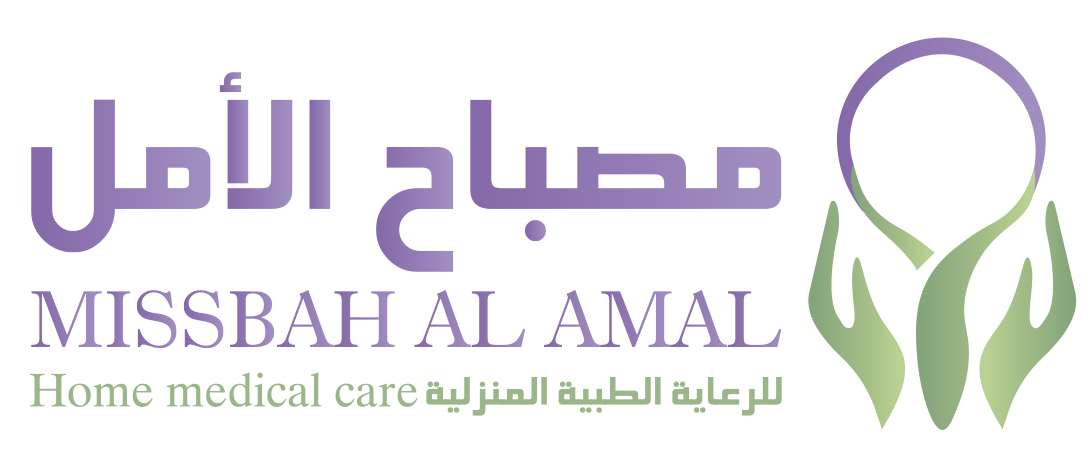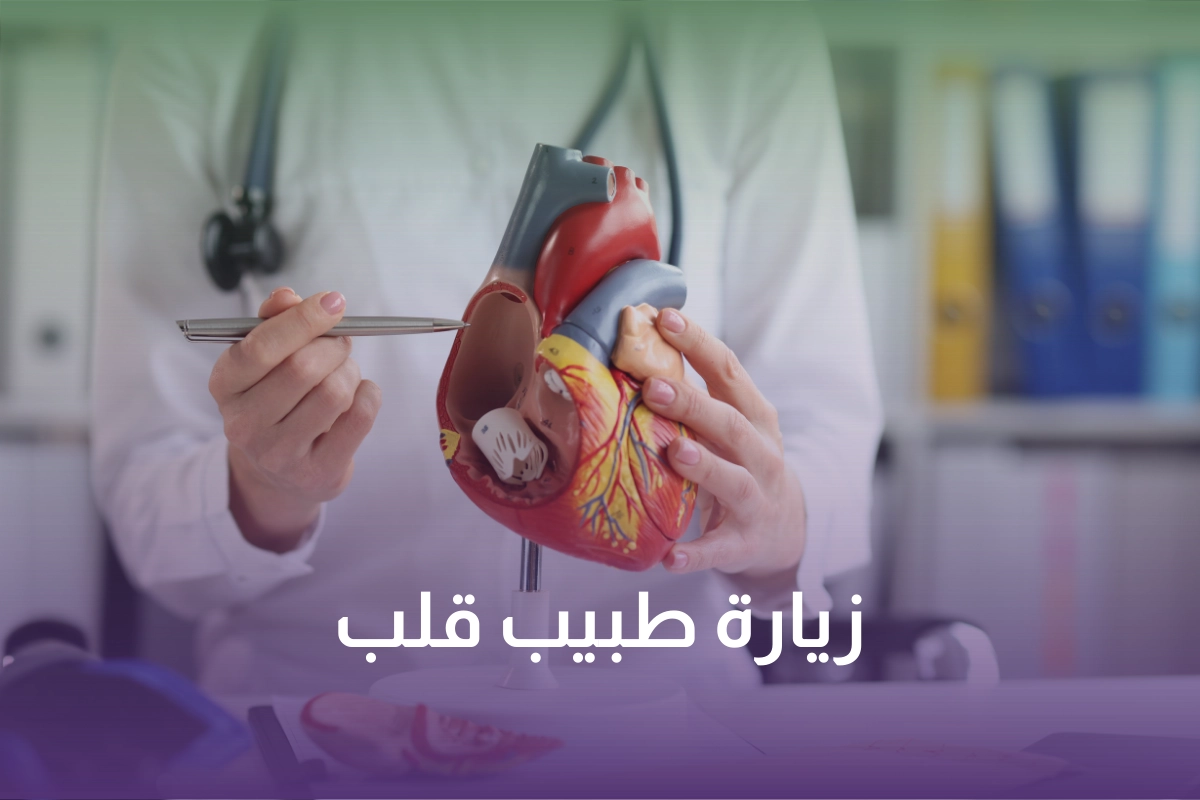Obtaining a specialized medical opinion is a vital step towards a comprehensive assessment of heart health. A cardiologist is expected to inquire about the patient's medical history, which is essential when visiting a cardiologist in Saudi Arabia, as this is a fundamental part of the diagnostic process. Additionally, the doctor conducts a thorough physical examination, helping to identify any signs that may indicate heart problems.
The cardiologist may recommend a series of necessary tests, such as an electrocardiogram (ECG), which is used to monitor the heart's electrical activity. They may also request a echocardiogram during a home cardiology visit in Saudi Arabia, allowing the doctor to see a detailed image of the heart's structure and function. Furthermore, a stress test may be conducted to assess how the heart functions under pressure, helping to uncover any issues that may not be apparent under normal conditions.
These procedures are an essential part of the Missbah Alaml Center for Home Healthcare, which is committed to providing comprehensive healthcare services and ensuring your heart's health and well-being.
Visiting a Cardiologist in Saudi Arabia
Caring for heart health and visiting a home cardiologist in Saudi Arabia is crucial for ensuring a long and healthy life. While a balanced diet and regular exercise are fundamental elements for maintaining heart health, consulting a cardiologist provides specialized insights into cardiovascular health. Let’s explore the reasons that may prompt you to schedule an appointment with a cardiology specialist, as the Missbah Alaml Center promises to provide the best specialists if any of the following reasons apply:
- Family History of Heart Disease: If heart disease is present in your family history, you may be genetically predisposed to it. Therefore, visiting a cardiologist in Saudi Arabia may be very important for assessing your risk factors and helping you develop a personalized preventive plan that suits your individual needs.
- High Blood Pressure: High blood pressure is a factor that strains the heart and arteries, increasing the risk of heart disease.
- High Cholesterol Levels: Elevated cholesterol levels contribute to atherosclerosis, playing a role in plaque formation within the arteries. In this case, visiting a cardiologist in Saudi Arabia can help you manage cholesterol levels through lifestyle changes or appropriate medications.
- Diabetes: Heart disease is more common among diabetic patients. If you have diabetes, visiting a home cardiologist in Saudi Arabia is essential, as the doctor can develop a comprehensive treatment plan for dual conditions, helping to reduce cardiovascular risks.
- Chest Pain or Discomfort: Persistent chest pain or discomfort may indicate a heart problem. Therefore, you should visit a cardiologist in Saudi Arabia, as they will conduct the necessary tests to determine the causes and prescribe appropriate treatment.
- Shortness of Breath: Heart problems sometimes manifest as difficulty breathing during physical activities. If you experience any of these symptoms, a cardiologist can check if they are related to heart issues.
- Irregular Heartbeat: If you feel an irregular heartbeat or palpitations, it is advisable to visit a doctor, who will perform an ECG or other tests to diagnose and manage arrhythmias.
- Swelling in the Legs or Ankles: Swelling in the feet and hands can result from increased fluid retention, which may indicate heart failure. A cardiologist can clarify the causes and prescribe appropriate treatment.
- Unexplained Fatigue: Persistent fatigue, sometimes without a clear reason, may be attributed to heart-related health issues. A visit to a cardiologist in Saudi Arabia can help you uncover the root cause of this fatigue.
- Smoking and Tobacco Use: Smoking is one of the leading causes of cardiovascular disease. A cardiologist is an important partner in helping you quit smoking, contributing to the maintenance of your heart health.
- Excessive Stress: Chronic stress negatively impacts heart health. A home cardiologist visit in Saudi Arabia can provide strategies to cope with stress and improve your quality of life.
- Obesity: Being overweight is a risk factor for heart and vascular function problems. Therefore, it is always advisable to consult a cardiology specialist who can create a personalized weight management plan.
- Lack of Physical Activity: A sedentary lifestyle contributes to heart disease, so cardiologists offer tailored exercise plans that consider your health status and ability to exercise.
- Sleep Apnea: Untreated sleep apnea can lead to high blood pressure and heart problems. However, a cardiologist, in collaboration with sleep specialists, can address this condition to improve overall heart health.
The Importance of Visiting a Cardiologist in Saudi Arabia
Many individuals, both women and men, suffer from heart-related health issues. These chronic diseases are a significant concern for heart health, highlighting the importance of choosing the right cardiologist and cardiac surgery consultant. The consultant should possess high expertise and competence, ensuring you receive the latest treatments and comprehensive care. This choice helps you regain your health, allowing you to live a more active and vibrant life without major health issues.
With extensive experience in cardiac surgery, the consultant provides specialized medical solutions for all heart problems using the latest techniques and precise surgeries, ensuring the best outcomes and exceptional medical care.
What is a Cardiac Surgery Consultant?
A cardiac surgery consultant is a physician specialized in diagnosing and treating heart diseases through surgery. By visiting a cardiologist in Saudi Arabia, the consultant can identify cardiac issues and provide appropriate treatment solutions based on the health condition.
This doctor plays a vital role in maintaining heart health. Therefore, if you experience any heart problems or notice signs indicating an issue, you should visit a home cardiologist in Saudi Arabia for proper diagnosis and treatment.
When Should You See a Cardiac Surgery Consultant?
Certain conditions warrant a visit to a cardiologist in Saudi Arabia, including:
- Severe or Persistent Chest Pain: Pain may radiate to the arm, shoulder, or jaw and intensifies with exertion.
- Shortness of Breath: Occurs during exertion or when lying down.
- Irregular Heartbeat: Whether the beats are fast or slow.
- Dizziness and Fainting: Especially when stopping suddenly or exerting effort.
- Swelling in the Legs or Feet: Particularly in the evening or after standing for long periods.
- Unexplained Fatigue: When performing simple tasks.
- Chronic Cough: Especially if accompanied by wheezing or pink sputum.
- Abdominal Pain: Particularly if accompanied by other symptoms like vomiting or nausea.
Early visits to a cardiac surgery consultant are vital, as early diagnosis helps initiate treatment promptly, increasing recovery chances and reducing the risk of complications such as heart attacks or strokes.
Latest Techniques Used by Cardiac Surgery Consultants in Complex Procedures
The field of cardiac surgery has witnessed tremendous advancements in recent decades, with advanced technology contributing to the development of new surgical techniques. Doctors strive to provide the best care for their patients using the latest tools and techniques, including:
- Robotic Surgery: A transformative approach in cardiac surgery, where precise surgical instruments are controlled by a robot, providing the surgeon with greater accuracy and flexibility, reducing bleeding and postoperative pain.
- Minimally Invasive Heart Surgery: Involves making small incisions in the chest and inserting small surgical instruments and a camera to visualize the heart, reducing the size of the wound and speeding up recovery.
- Beating Heart Surgery: Surgery is performed while maintaining the heart's natural rhythm, using techniques to stabilize the heart and maintain blood flow.
- Catheter-Based Aortic Valve Replacement: An alternative to traditional surgery for replacing a damaged aortic valve, where the new artificial valve is inserted through a femoral artery.
- Advanced Imaging Techniques: Such as computed tomography (CT) and magnetic resonance imaging (MRI), providing three-dimensional images of the heart, assisting the surgeon in planning the procedure accurately.
- Circulatory Support Devices: Used during surgery to maintain blood flow to the body, reducing stress on the heart and improving surgical outcomes.
How to Choose the Right Cardiac Surgery Consultant for Your Health Condition?
Choosing the right cardiac surgery consultant or visiting a cardiologist in Saudi Arabia requires considering several factors, including:
- Ensuring the doctor specializes in cardiac surgery.
- Researching their extensive experience in performing various surgical procedures.
- The doctor should be knowledgeable about the latest techniques and methods in cardiac surgery.
- You can also check their participation in medical conferences and publication of scientific research.
Missbah Alaml
Regular visits to a cardiologist or a home cardiologist in Saudi Arabia are important even in the absence of symptoms, as they help detect problems early before they escalate. Therefore, Missbah Alaml is your best choice, as the center includes a team of specialized doctors in various fields, including bypass surgery, minimally invasive or non-invasive heart surgery, interventional cardiology, and treating heart diseases in newborns and young children.
The center also addresses the needs of patients suffering from high blood pressure, heart failure, and cardiomyopathy, receiving over 2,500 patients annually across various specialties in heart disease and surgery. Thousands of surgical procedures, specialized interventions, and diagnostic tests are conducted that are not available elsewhere in the Kingdom.
The center is renowned for its advancements in critical care for heart diseases and is one of the few centers regionally that uses mechanical devices in transplant or resuscitation surgeries. Additionally, the center provides home cardiology visits in Saudi Arabia, reflecting its commitment to delivering advanced medical care to patients suffering from multiple chronic diseases.




